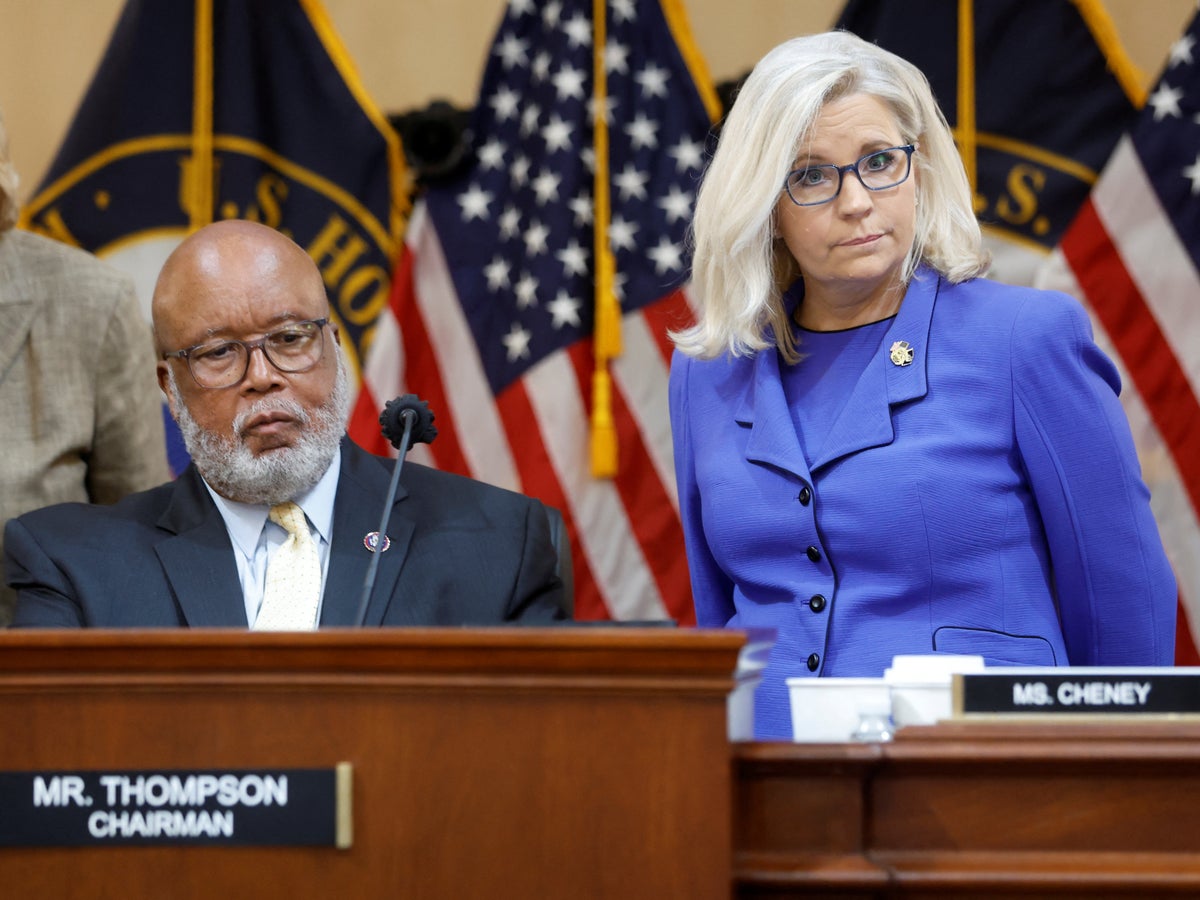
After a shattering first session in its round of televised hearings, the 6 January committee is shortly beginning its second hearing of the summer: a session focused on the the genesis and spread of the “Big Lie”.
The hearing will feature four witnesses – a group of men whose careers put them in very different positions between election night on 3 November 2020 and the events of 6 January 2021.
Chris Stirewalt
Chris Stirewalt was political editor of Fox News at the time of the 2020 election, meaning he had crucial influence over the network’s coverage of the election results. In that capacity, he authorised the network to go ahead with calling Arizona for Joe Biden, making the Trump-friendly outlet the first major network to put the state in the now-president’s column.
That decision, which emanated from Fox News’s decision desk, enraged Mr Trump and shocked many of his inner circle as they watched the results come in. Mr Stirewalt was fired the following January.
In an LA Times op-ed published just weeks after the Capitol attack, he wrote: “I was proud of our being first to project that Joe Biden would win Arizona, and very happy to defend that call in the face of a public backlash egged on by former President Trump. Being right and beating the competition is no act of heroism; it’s just meeting the job description of the work I love.”
Byung J. Pak
Byung J. (or “BJ”) Pak was a US Attorney in Atlanta at the time of the 2020 election, but resigned on 4 January 2021 as the Trump team insisted falsely that the election in Georgia had been marred by massive electoral fraud. He testified behind closed doors last summer to the Senate Judiciary Committee in an appearance that gave Democratic panel members confidence that he believed in the rule of law.
Mr Pak’s name was mentioned by Mr Trump in the infamous January 2021 phonecall with Georgia Secretary of State Brad Raffensperger, a conversation in which the then-president suggested that the Georgia authorities needed to “find” enough votes for him to win. That conversation is now the basis of an investigation in the state’s Fulton County that has seen a grand jury impanelled to weigh up possible criminal charges.
Benjamin Ginsberg
A longtime Republican election lawyer, Benjamin L. Ginsberg was a determined Trump critic before the 2020 vote. Writing in the Washington Post two days before the election, he warned that Mr Trump’s escalating efforts to delegitimise the election were already having a corrosive effect.
“Perhaps this was the plan all along,” he declared. “The president’s unsubstantiated talk about ‘rigged’ elections caused by absentee ballot ‘fraud’ and ‘cheating’ has been around since 2016; it’s just increased in recent weeks.”
His appearance at the committee is expected to focus on the paucity of evidence of relevant election fraud, and on the myriad failed cases brought by Trump-allied attorneys around the country in the weeks preceding the insurrection.
Al Schmidt
Al Schmidt was the only Republican city commissioner overseeing the 2020 election in Philadelphia, a position that put him in the crosshairs of the false conspiracy theory that deeply embedded electoral corruption in Pennsylvania’s largest city threw the state to Joe Biden. He was singled out by Mr Trump as being “used” to advance the Biden campaign’s supposed fraud, and has publicly disputed that claim and others like it many times since the immediate aftermath of the election. This earned him Mr Trump’s specific ire, with the then-president calling him “a disaster on the massive election fraud and irregularities which took place in Philadelphia”.
He left his post in January 2021, but insisted to the Philadelphia Inquirer that he had not been driven out by the “psychological terrorists” among Trump’s base.
Not testifying: Bill Stepien
Bill Stepien was the campaign chair for the last leg of Mr Trump’s failed re-election effort. A former aide to ex-New Jersey Governor Chris Christie, who went from being a Trump rival to an ally to an on-off critic, took the helm of the campaign in the summer of 2020 as it became clear Mr Trump was struggling to keep the operation organised.
A much less flamboyant and belligerent figure than his predecessor, Brad Parscale, he was set to testify under subpoena, but had to drop out at the last minute because of an unspecified family emergency. It was reported that his wife had gone into labour.







